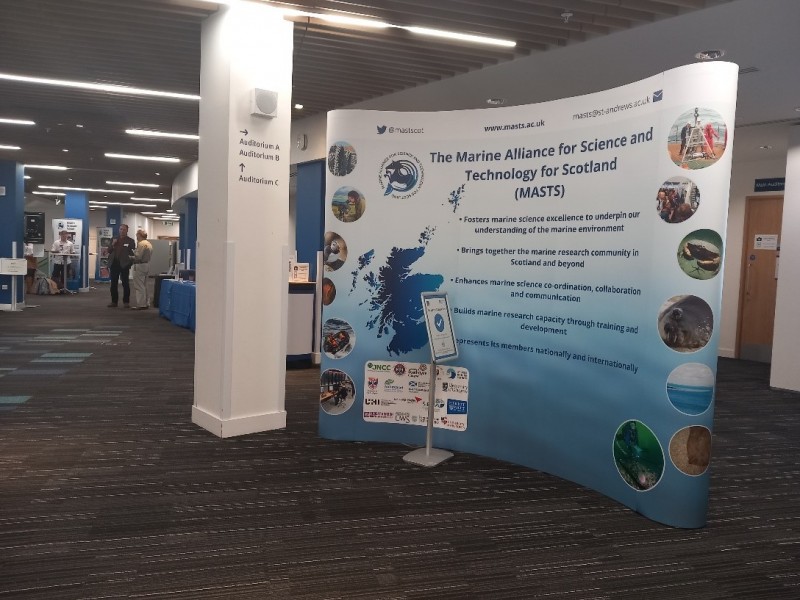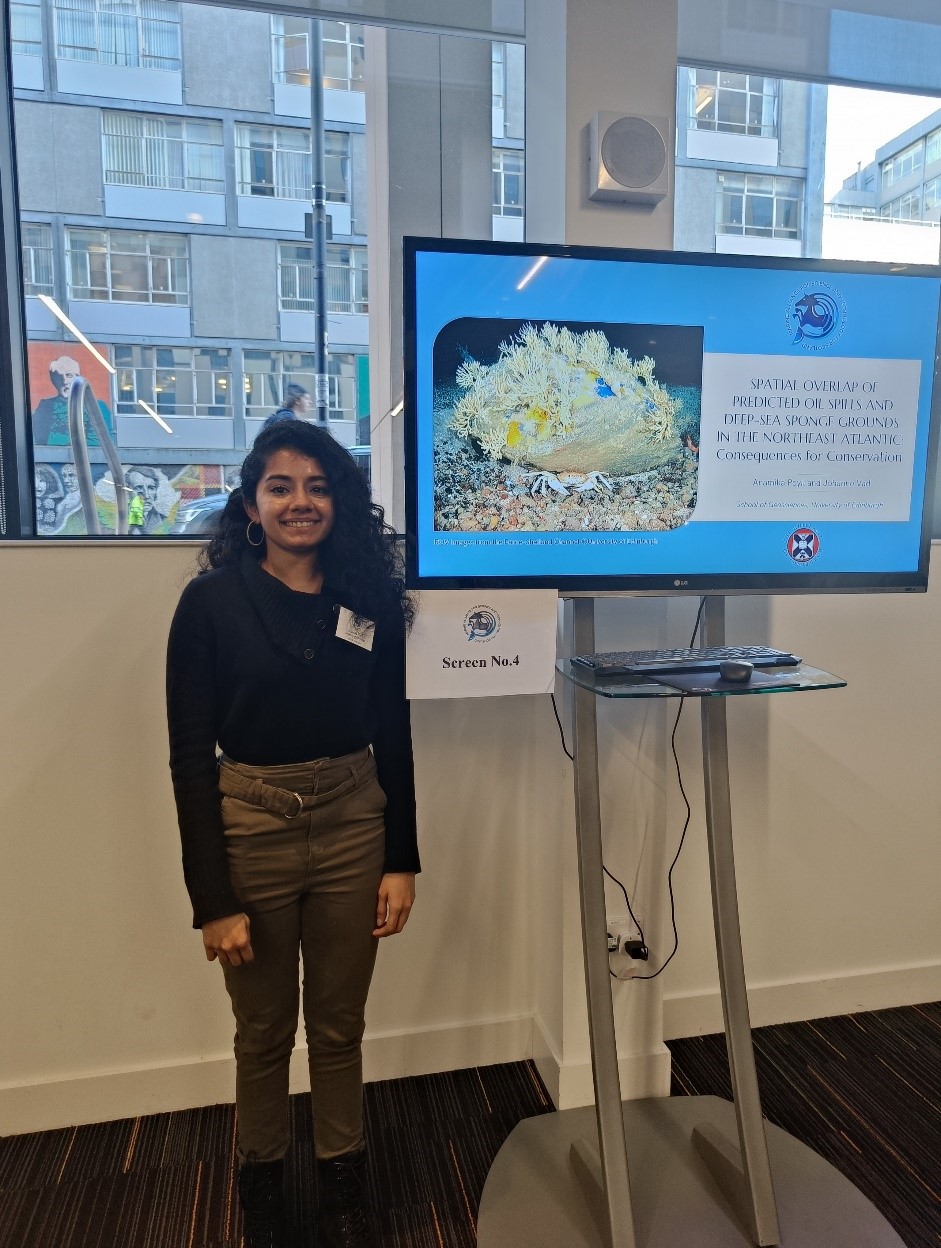Marine Alliance for Science and Technology Scotland Annual Science Meeting, 2022
Anamika Poyil
University of Edinburgh

Caption: The MASTS 12th ASM venue at the Technology & Innovation Centre, University of Strathclyde, Glasgow.
I am extremely grateful to the Challenger Society for awarding me a travel grant to participate in the 12th Marine Alliance for Science and Technology Scotland (MASTS) Annual Science Meeting (ASM) from 8-10 November 2022, held in Glasgow at the University of Strathclyde. Since the previous ASMs for the last two years were online, attending the conference in person was a welcome relief. This was also my first time presenting my research as an e-poster. The twelfth MASTS ASM aimed to promote and disseminate marine science research on how to support the Blue Economy Vision for Scotland. I enjoyed attending the ASM because I was able to listen to expert plenaries and talk sessions discussing marine science research and management practices in view of global climate change. I spent Day One mostly attending sessions, looking at the exhibits and e-posters and networking with peers, researchers and academics interested in ecological modelling. There were several engaging talks on the latest innovations in integrating science and policy to address Scotland’s Blue Economy Vision and modelling studies concerning climate change and species dispersal.
On Day Two, I presented my research in the e-poster session alongside a few classmates from my master’s programme. My research examined the spatial overlap between a broad-scale ensemble species distribution model (SDM) produced for deep-sea sponges in the Northeast Atlantic and Nordic regions and already available modelled oil spills at the depths of 10-450 metres, 500-950 metres and 1000-1500 metres in the Faroe-Shetland Channel. The ensemble model was estimated as the weighted average of three SDMs fitted to deep-sea sponge occurrence records obtained from the International Council for the Exploration of the Sea Data Portal using Maximum Entropy, Generalized Additive Model, and Random Forest algorithms using the programming language R and QGIS. The e-poster displayed a succinct version of my research, explaining the overview of the approach, the predicted sponge habitats in the study area using the SDMs, the visualisation of the spatial overlap between the ensemble model and oil spill models, and recommendations on how the research can assist future deep-sea surveys, environmental impact assessments and marine spatial planning. It was an enriching experience to talk to people of different backgrounds, from academia to industry stakeholders, about my research and discuss future opportunities and developments in the field of deep-sea ecological modelling.

Caption: Presenting the e-poster of my master’s dissertation research on Day 2 of the MASTS ASM.
The final day involved workshops and training sessions, and I attended the “10th Anniversary Special of the Salvage, Decommissioning & Wreck Removal Workshop” organised by the Society for Underwater Technology, MASTS, and the D’Arcy Thomson Forum. The highlight of the workshop was the session on the exploration and removal of wrecks, with a presentation that took the audience all the way down to the Titanic and its current purpose of serving as an artificial reef for an array of marine communities on the ocean floor of the North Atlantic. I greatly appreciate the Challenger Society’s generous assistance in enabling my participation at the MASTS ASM, and I look forward to the next ASM in 2023.
Profile
I have a master’s degree (MSc Marine Systems and Policies) from the University of Edinburgh, and my dissertation focussed on analysing the spatial overlap of oil spill models in the Faroe-Shetland Channel and the ensemble species distribution model of deep-sea sponges in the Northeast Atlantic and Nordic regions. I am currently working as a GIS officer for the Scottish East Coast Review (SEaCoR) Project, collaborating with Project Officers in GIS analysis and mapping for its digital report to illustrate the sustainability of the East Coast of Scotland using state, pressure, and impact indicators.
Latest News
Royal Society Publishing Photography Competition 2025
Please see a message from the Royal Society below:
We are delighted to announce that the 2025 Competition is now open for entries until 15 August for a chance to win £1000! The competition celebrates the power of photography in conveying the wonder of science happening all around us and photographs can be submitted in the categories of: Astronomy, Behaviour, Earth Science and Climatology, Ecology and Environmental Science, and Microimaging.
The competition is free to enter and open to anyone studying or working in science at graduate level or above. Category winners will receive a one-year membership to the Royal Photographic Society and the overall winner will receive a grand prize of £1,000. Find out more: https://bit.ly/RSPphotocomp
October 2025 MEDIN Workshop: Marine Data Management, Governance and the MEDIN toolset
The Marine Environmental Data and Information Network (MEDIN) are pleased to announce that registration is now open for the next occurrence of our popular free online training workshop: ‘Marine Data Management, Governance and the MEDIN toolset’ on the 13th – 17th October 2025 on OceanTeacher Global Academy.
Marine Data Management, Governance and the MEDIN toolset
The Marine Environmental Data and Information Network (MEDIN) and OceanWise are delighted to invite you to attend our popular free online training workshop: ‘Marine Data Management, Governance and the MEDIN toolset’ on the 19th – 23rd of May 2025.
